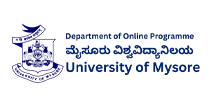From Bachelor’s to Doctorate: Your Step-by-Step Guide to Advanced Study
Thinking about doctoral education but not sure what that may look like? You’ve come to the right place! Getting a doctorate can be life-changing, but it is also a large investment of your time and energy. Whether you’re pursuing a PhD, a professional doctorate, or just want to understand what earning one of these advanced degrees entails, you are in the right place!In this blog, we will help you explore everything you need to know to help you understand doctoral studies: types of doctorates, how they compare to other degrees, what benefits they provide, and a complete overview of what the process entails—from choosing a program, to conducting the necessary research, and writing your dissertation, we'll help you through the whole experience.
Whether you are actively thinking about getting a doctorate or want to be informed, this post will help you consider and understand the work it takes to get the highest academic degree. Let’s break this down.
What is a Doctorate Degree?
A doctorate degree is the highest academic degree that can be granted by a university. Earning a doctorate represents that you have achieved a level of mastery in a certain field of study or a professional practice and made an original contribution to knowledge in that field.Doctorates usually involve a number of years of courses, independent research, and the completion of a significant project such as a dissertation. Compared to undergraduate degrees or even master's degrees, doctoral study is specialized, focused on developing new knowledge rather than learning what others have produced.
The popularity of online and distance learning will lead to the idea that education should and has gone fully digital. Many quality universities have adopted this strategy to deliver fully online PhDs and DBA-type grading or experience, thereby allowing for the same standards as students experience in a traditional on-campus institution. This could work for someone who holds a job, has a family, or simply cannot study in a traditional way.
Types of Doctorate Degrees
.jpg)
There are two main categories of doctoral degrees:
- Research Doctorates (e.g., PhD):
- Professional Doctorates:
Understanding How a Doctorate Differs from Other Degrees
- Bachelor's Degree
- Master's Degree
- Doctorate Degree
In summary, a doctorate is about becoming an influential leader, innovator, and expert in your field.
Why Get a Doctorate?
- Achieve the highest academic credentials in your discipline.
- Choose or pursue careers in academia, research, leadership, or specialized industry.
- Develop expertise and credibility.
- Make contributions and move the profession forward with meaningful research or advancements in your areas of interest.
Is a Doctorate Right for You?
Before you consider starting a doctoral program, you should ask some or all of these questions. A doctorate is a significant commitment of time, energy, and expense. It is not the right path for everyone. Knowing your motivation, goals, and readiness will allow you to determine if the time and effort to pursue your doctorate is truly worth it.Who Might Pursue a Doctorate?
A doctorate may be a good fit for you if you:- Have an interest or passion for a particular topic or professional area.
- Enjoy digging deep into research, writing, and problem-solving.
- Someone who wants to develop new knowledge or practice within their professional area.
- Want to engage in academic, research, or leadership roles where a doctorate is expected, or engage in a highly specialized profession.
- If you are ready for a multi-year commitment, as doctoral programs typically last for years.
Skills Needed for Doctoral Studies
Passion and interest are important, but doctoral study also requires some skills and habits, such as the following:- Critical Thinking: the ability to query, analyze, and synthesize complex material.
- Advanced Research Skills: skill and comfort in designing, conducting, and interpreting research.
- Writing Ability: the ability to communicate complex ideas clearly in writing.
- Self-Discipline and Time Management Skills: the ability to manage large projects on your own.
- Resilience: the ability to cope with obstacles, revisions, and the highs and lows of an extended journey.
Career Aspirations and Personal Motivation
Consider the following questions, and if the answer is yes, then you are all set to pursue a doctorate program that suits your future goals and motives:- Do I need a doctorate for my future career aspirations? (e.g., to be a professor, to lead research, or to progress in highly specialized industries)
- Am I genuinely motivated to investigate this subject in-depth?
- Am I prepared to make the necessary financial and time commitments?
How to Go from Bachelor’s to Doctorate?
.jpg)
Obtaining a doctorate is a process that typically initiates your undergraduate education and will take some time to properly prepare for and plan. Depending on your discipline and career aspirations, there can be a few different pathways you can take.
Step 1: Complete your bachelor's degree
In education, the initial step in pursuing a doctorate is to obtain a bachelor's degree. Although many disciplines allow flexibility, it may be wise to select courses in a specific area related to what you eventually desire to study in detail.
- To construct a solid platform:
- Prioritize your GPA, as most doctoral programs are highly competitive.
- Consider inquiry-based projects/experience with internships, and coursework that may be offered.
- Build relationships with faculty members, as you will need to obtain strong recommendations from at least one faculty member (or possibly two).
- Take advantage of honors programs or any undergraduate thesis options.
Step 2: Obtain a Master’s Degree (only if needed)
In some disciplines, a master's degree is a requirement prior to entering a doctoral program, and in others, it may be acceptable to directly apply to a doctorate following your bachelor’s.
- When a master's may be needed:
- The doctoral program recommends or requires lengthier academic preparation.
- If you are changing fields and require a foundational knowledge base.
- If you want to bolster your academic profile.
How to Choose the Right Doctoral Program?
Choosing the right doctoral program is the first step in ensuring your success. Not all programs are the same. Finding the one that best fits your career aspirations, personal interests, and distinctive learning style will make a huge difference in your experience as a doctoral student.Considerations for Choosing a Doctoral Program:
Choosing the right doctoral program is the first step in ensuring positive outcomes as a doctoral student. Finding one that best fits with your career aspirations, personal interests, and unique learning style will make a difference in your doctoral experience.
Considerations in choosing a doctoral program:
1. Accreditation and Reputation:
Make sure to consider if the institution, as well as the program, is accredited and reputable. Accreditation will let you know that the education you receive will meet minimum standards and will be recognized by employers or colleges later.
2. Research Focus or Application Focus:
Make sure you understand if the doctoral program has a research focus (like a traditional PhD) or application focus (like an EdD or DBA). Research doctoral programs will tend to be more academic and theoretical, while professional doctoral programs are more about applying that theory to solve real problems in practice.
3. Look at Faculty and Mentor Opportunities:
Explore the Faculty pages to learn about their research interests, number of publications, and whether they are willing to mentor students. Even though there are many factors that can have an impact on your experience and success in a particular doctoral program, a good advisor is certainly a major factor.
4. Flexibility or Learning Format:
If you have commitments associated with work, family, or other obligations, consider if an online doctoral program would fit more seamlessly with your schedule. More routinely available, validated, online doctoral programs offer the same, maybe even better quality of higher education, but with flexibility.
5. Cost and Funding Opportunities:
Doctoral programs can be very costly. Research tuition and possible scholarships, assistantships, and other funding options for doctoral students. Some online programs also offer lower tuition than traditional on-campus studies.
6. Program Length and Structure:
Doctoral programs can vary significantly, taking anywhere from 3 to 7 years. Familiarize yourself with your chosen program's expected timeline, the coursework offered while enrolled, the dissertation or capstone requirements, and any residency requirements (this is especially important for online programs).
7. Career Outcomes:
Research the career paths taken or achieved by previous graduates. Is there evidence that your program of interest is well-preparing students for the careers you find interesting, whether that is in academia, industry, consulting, or other leadership roles?
How to Apply for Doctoral Programs?
An application to a doctoral program will be more competitive and involved than an application to an undergraduate or even a master's degree. Each part of your application should give evidence for your academic potential, research interests, and suitability for advanced study.Stages of an Application Process:
.jpg)
- Know the Admission Requirements:
- Write a Great Statement of Purpose:
- Get Strong Letters of Recommendation:
- Update and Polish your Academic CV or Resume:
- Prepare for your Entrance Examinations (If Necessary):
- GRE: This standardized test is typically required for most PhD programs across a variety of disciplines.
- GMAT: This standardized test is more commonly geared towards business-type doctorate programs, such as DBA.
- Prepare for Admission Interviews:
What to Expect During Your Doctorate?
Once you are accepted into a doctoral program, you will undertake the toughest educational journey known. Whether you have chosen on-campus learning or accredited online learning, the traditional backbone of a doctorate will entail coursework, comprehensive exams, research, and a dissertation..jpg)
1. Doctoral Courses
It begins with advanced coursework covering theory, research methods, ethics, and specialized topics in your field. The courses, both face-to-face and online, are highly interactive and require extensive reading, writing, and discussion.
2. Comprehensive Exams
Once your coursework is completed, you will need to take comprehensive exams. This is important to assess your mastery of the subject. Some online graduate programs will use remote proctoring to have comparable rigor and standards for face-to-face comprehensive exams.
3. Research Proposal and Approval
Before you start your dissertation, you will submit and defend a research proposal that outlines your topic, methodology, and expected contributions to the field. The research proposal defense may occur face-to-face or virtually, depending on the program you are in.
4. Finding the Right Advisor
Identifying the right advisor is very important. A good advisor can assist the student's research by providing guidance, feedback, and support. Generally, online students are assigned a faculty mentor, and that mentor will be encountered (virtually) often throughout the project.
Writing and Defending Your Dissertation
The dissertation is the focal point of your doctoral journey and represents your opportunity to conduct original research, develop new knowledge, and display expertise in your subject matter. Whether a student pursues an online doctoral program or an on-campus doctoral program, the publishing and defending of their dissertation is a monumental academic achievement.Steps for Writing a Dissertation
.jpg)
1. Research Topic:
Your dissertation topic should be a reflection of your discipline of study, professional or career goals, and fill a gap in existing research. Your dissertation topic should be narrow, engaging, and feasible considering your timeline.
2. Literature Review:
Afterwards, you will need to contend with the current literature before beginning any of your own research, so you will be familiar with the current literature, findings, and gaps in the literature. In preparation, a focused literature review will show your ability to understand your field and build relevance for your study.
3. Methodology:
Determine whether you plan to conduct qualitative, quantitative, or mixed methods approaches. Your methodology should correspond with your ability to respond to your research questions and the purposes of your study.
4. Data Collection and Analysis:
Once you collect your data consistent with your research design, you then analyze your data consistent with what is appropriate or typical. Effective data analysis is important so that you can draw conclusions from your findings.
5. Dissertation Writing
Your dissertation will have the same overall structure and usually include the following chapters:
- Introduction
- Literature Review
- Methodology
- Results/ Findings
- Discussion
- Conclusion & Recommendations
1. Schedule the defense and prepare
After you have completed your dissertation and received your advisor's approval, you may find a suitable time to schedule the defense. You will be presenting your dissertation to a committee that will ask you about how you organized your research and will defend or support your findings and work in general, while also being prepared to answer the types of questions that might be hardest.
2. Know your research backward and forward
Be ready to speak in detail about every aspect of your dissertation. You need to be ready to speak about everything, starting with your theory, methodology, or data collection, and the data you collected. You also need to think about what questions may arise, whether from committee members, advisors, the audience, or others, and prepare possible answers.
3. Virtual defense considerations for distance programs
In longer formats or programs like online doctoral degrees, it is possible you will be engaged in a defense using video conferencing tools. Virtual defenses, like the previous forms of defense, retain a level of formality and rigor, so make sure you are prepared.
Earning Your Doctorate: Graduation and Beyond
Completing and successfully defending your dissertation should signal the last educational landmark in your educational journey towards the degree of doctoral. Now it will be time to think about the next stage of your discovery journey that will hold possibilities, pathways for career development, and the acknowledgment of your efforts.Career Options After Your Doctorate
.jpg)
Academic Careers:
Many doctoral graduates stay within the university campus as professors, researchers, or administrators, rather than taking another career path. Generally, a PhD is the minimum degree requirement for any tenure-track position.
Professional Careers or Industry:
You also have a doctorate, which gives you the ability to consider jobs in various industries, outside of a university or college campus, such as healthcare, leadership roles in education, consulting in the business world, technology, and even public policy. If you are working on a professional degree, DBA, EdD, or DNP, those doctorates can add value in applied settings.
Entrepreneurship or Consulting:
Some doctoral graduates leveraged their experience and opened consulting companies, wrote books, or became thought leaders.
Additional certification and post-doc research:
Depending on your discipline, you may obtain additional certification or post-doctoral research fellowships to add even more expertise.
Conclusion
Whether you go on the traditional path of attending an on-campus experience or the newer option of online, in the years ahead, your growth will require talent academically, professionally, and personally. After all, you will not just be adding some letters after your name - you will have an opportunity to initiate a new life as an expert, researcher, and leader in your profession.If you are just beginning the process of considering doctoral study, acknowledge that you are allowed to take your time, ask questions, and take your own path that fits your goals and lifestyle. Each decision you make from selecting a program to defending your dissertation will bring you one step closer to accomplishing something amazing.
Regardless of whether you are at the beginning or some other point in the journey, remember that with the right amount of preparation and your mind in the right place, you can earn your doctorate. Are you ready to take the first step toward your future? You can do it!
Frequently Asked Questions
1. How long is a doctorate?
Doctoral programs last between 3 to 7 years, depending on the field, program design, and full-time or part-time studies.
2. Can I earn a doctorate online?
Yes! Many accredited universities offer online doctoral programs and courses with the same academic rigor as their on-campus counterparts.
3. What’s the difference between a PhD and a professional doctorate?
A PhD does original research and publishes original academic scholarships, while professional doctorates (DBA, EdD, DNP, DPT) apply research to real-world problems.
4. Do I need a master's degree before applying for a doctoral degree?
Not always. Some doctoral programs accept students prior to earning a master’s degree. Many have a master's requirement or preference.
5. Is a dissertation always required for a doctorate?
Most doctoral programs require a dissertation or a monograph. Professional doctorates may allow you to complete a capstone project or applied research project instead.
Trending Posts
-
UGC-Approved Online and Distance Psychology Programs in India: Top Colleges Listed
-
Everything You Need to Know About O.P. Jindal University Online Programs
-
Top IIMs in India 2025: Which One is Best for You?
-
Thinking About an MA? Here's Everything You Need to Know Before Enrolling
-
15 Top Online MBA Colleges in India in 2025
-
Top PhD Scholarship and Fellowship Opportunities in India 2025
-
How to Choose the Right Stream After Class 10: A Complete Guide
-
Understanding NIRF Rankings: Significance, Impact, and Future Scope
-
Do You Really Need UGC-NET for a Ph.D in 2025? Let’s Break It Down
-
How to Convert Million to Crore? A Simple Calculator Guide
-
NMIMS vs Manipal Online MBA: Which One is Best for You?
-
Confused About GPA to Percentage? Here’s How to Convert It!
-
Decoding CGPA: How to Convert It into Percentage Easily
-
Parul University Online Programs 2025: Programs, Admission, and Benefits
-
Best Psychology Courses in India: UG, PG, Diplomas & More






































































